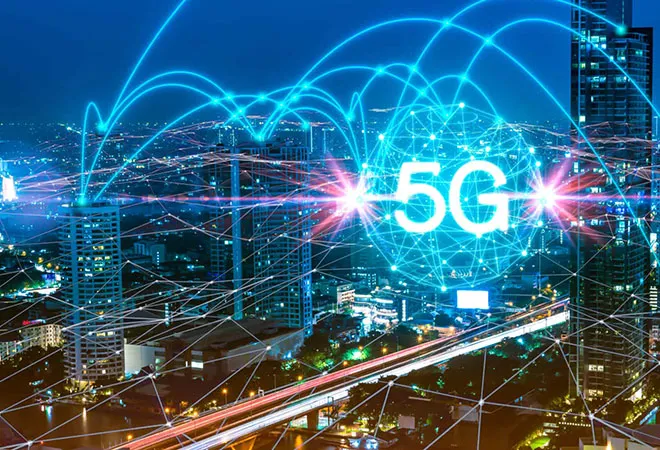The UK has rejected Huawei as a 5G partner, and says that it is now forging an alliance of ten democracies (D-10) to create alternative suppliers for 5G and other technologies from China. And, surprise, surprise, a major role is being envisaged for New Delhi in this venture. There’s nothing like a bit of anti-Communism to get the blood rush of the UK-US alliance going, and so since the old G-7 has refused to take life, a D-10 has been trotted out, with opposition to Huawei’s 5G acting as the cement. As the global hegemon, the US doesn’t want any other country, especially, a non-Western one, to lead in a foundational technology like 5G. As for the UK, till as recently as January, its intelligence agencies were certifying that the risks of dealing with Huawei were manageable. So what’s going on here?
Covid has, of course, addled things, but the UK also wants to leverage a leadership role for Brexited Britain. Countries fixated on “grand strategies”, like the US and Australia, want to use the denial of India’s huge market to strangle the rise of Chinese technology. There should be a sense of deja vu here. In the 1950s and 1960s the UK and US saw us as an answer to Communist China’s growth model. India never did live up to its role and set off on its own course, throwing off the Anglo-American embrace.
“Democracy” in India doesn’t quite mean the same thing it does in London or Washington. It remains a long work in progress. Whether it’s in governance institutions, caste or communal equations or police and legal institutions, large areas of iniquity and inequity remain. Our variant is an electoral democracy which holds periodic elections and gives us successive governments which haven’t quite yielded economic and social justice, leave alone decent governance. Democracy is working well elsewhere, but our place in the D-10 is really honorary, occasioned by the geopolitical needs of the UK, US and other countries.
Democracy with Indian characteristics comes with a dash of authoritarianism. It’s about politically motivated IT raids on the Opposition in Karnataka and Rajasthan, or the fine of Rs 84 crore on PTI, India’s largest news agency, on account of its interview of the Chinese ambassador. Or the numerous people incarcerated on political grounds across the country and charged under the colonial statute of sedition. The biggest blot on the Indian “democratic” system is its police. The Delhi Police’s shoddy handling of the violence against Muslims in the wake of the CAA protests in January shows that the institution had learnt nothing and forgotten nothing from its cringe-worthy handling of the 1984 Sikh massacres. Instead of insisting on, and advancing, the rule of law, political leaders in the country have given the police a free rein to conduct extra-judicial killings.
Now even electoral democracy is eroding. Nothing could be more emblematic than Ashok Lavasa’s decision to become one of the vice-presidents of the ADB, forgoing the option of becoming the Chief Election Commissioner of India next year. Like Lavasa, others have thrown in the towel too – sections of the media, parts of the judiciary and bureaucracy.
BJP alone is not responsible for this situation. Political corruption, extra-judicial killings, tax harassment, have been around for a long time. But under the current government the situation seems to be in free fall. There appears to be little concern, even at the highest echelons, at the propriety of defectors becoming ministers, encounter killings, incarceration without trial, or the undermining of the media. Upholding political morality and respecting due process are part of the immune system that protects the body politic of a democracy. Wantonly weakening it is to invite disease and destruction.
As for our geopolitical concert of democracies, given India’s Covid-19 situation and alarming economic situation, there are issues that New Delhi ought to focus on other than external ventures. The crisis we face is not going away, notwithstanding the concerted spin. Along with our economy, our democracy is going under. We’re not even flailing our hands to stay afloat.
This commentary originally appeared in The Times of India.
The views expressed above belong to the author(s). ORF research and analyses now available on Telegram! Click here to access our curated content — blogs, longforms and interviews.




 PREV
PREV


